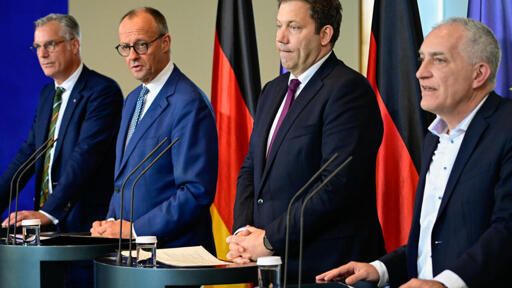- cross-posted to:
- europe@lemmy.dbzer0.com
- cross-posted to:
- europe@lemmy.dbzer0.com
…
The EU in October floated plans to double tariffs on foreign steel – taking a leaf from US President Donald Trump’s book to shield the bloc’s struggling industry from cheap Chinese exports.
The bloc’s executive proposed hiking levies on steel imports to 50 percent and slashing the volume allowed in before tariffs apply by 47 percent.
“I will support these proposals to the best of my ability and hope that appropriate regulations will be put in place,” [German chancellor Friedrich] Merz said.
…
As an addition:
-
The steel industry is one of the most subsidized industrial sectors across all countries, mainly to preferential loan terms as debt is the sole source of funding in the industry.
-
Across all countries, larger steel firms are subsidized than smaller ones, and state-owned enterprises receive more subsidies than other firms.
-
China is by far the largest steel maker, producing more than half of all crude steel in the world. China’s subsidization rate is ten times that of OECD countries. In addition to government grants and below market borrowings, measures include subsidized energy prices and preferential tax treatment for steel firms.
…



How is it possible that one man is economicly dumb that he wants more Gas and not renewable Energie, which will increase the energie price even more and make us more dependend and open to blackmail, so racist but then also good takes every now an then.
I guess its right what they say, even a blind chicken can find a corn.
Edit:
We really need european autarky in all essential thing! We need to revamp our inginuity to find ways around not needing curtain resources for things! I am no physician or electrician but there must be an alternative for those rare earths, no?
There aren’t really good alternatives to the rare earth metals in terms of what they are used for, but there can be in terms of supply of them. Despite their name they are not actually that rare, just not very easy to extract economically. In terms of the percentage of Earth’s crust made up of them, most rare earths are pretty similar to such widely-used stuff as copper and tin. The problem is that they don’t usually gather up into high concentrations that are easy to mine, they’re all dispersed
China has a combination of really good reserves of them, a lot of industrial investment into the process of producing them, and a conscious strategy to be involved in other places with good reserves by doing the refining of their ores. There’s plenty of rare earth deposits elsewhere, but China has done it cheaper than everyone else for a while now. Brazil, India, Australia, and Russia have the next-biggest reserves, and I can’t help but note that China has made efforts to align with three of those four